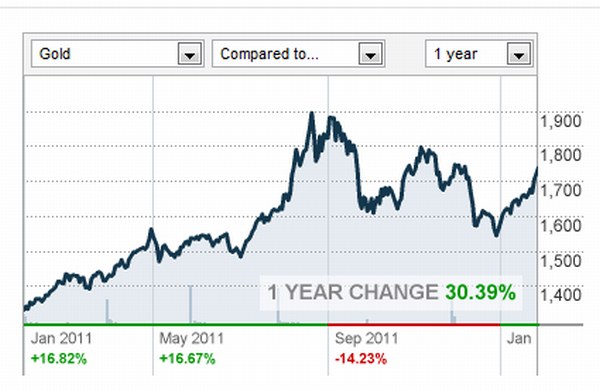How to Make Your Money Work for You With Investment

It is not uncommon to feel a little conflicted when it comes to money and wealth. In fact, many people grow up with conflicting beliefs and values around the two and even more misunderstand how they work together.
Many people believe that they want to be wealthy, but financial freedom is really what they are looking for. Managing and mastering your money effectively in order to get to a point where you can make it work for you is important.
Once your future needs become more important than your current desires, it becomes easier to really make your money do what you want it to.
Whether you’re working full-time, running your own business, or even a student, your money should work as hard for you as you worked to earn it.
Having money in the bank is essential for everybody, and the good news is that investing or saving part of your income each month is the best way to grow your wealth over time. However, there is a marked difference between saving and investing that you should be aware of.
While saving is generally just storing your money away for the future, investing allows you to make your savings grow. One of the main factors that set the super-wealthy apart from everybody else is that they earn interest rather than paying it.
The main ingredients in building wealth are not very complicated. Spending less than you earn, saving the difference, and earning interest on your savings through investments is key.
While building your wealth and achieving financial freedom is something to commit to long-term, the right decisions and discipline can help you achieve your goals.
Here are some ways to get your money to work for you:
Budget Wisely:
Having a clear budget is the best way to make sure that you have more control over your finances. When you take the time to draw up a personal budget, you know where your money is going and can avoid surprises.
In addition, it allows you to make better financial decisions each time you get paid by being aware of where your money is set to go throughout the month.
Always make sure that putting money into your savings account is the main priority by paying yourself first. Once you get in control of your budget, it becomes easier to reach your financial goals and avoid getting into debt.
Pay off Debts:
The unfortunate fact is that your money isn’t really yours until you are debt-free, and this includes all debts, even the good ones. Your extra cash is definitely best invested in growing your overall wealth and net worth rather than repaying debts.
But depending on your personal situation, reducing and eventually clearing all your debts can often seem like a huge issue to handle.
The best way to approach is it by clearing off your smaller debts first, which will free up cash that you can use to put towards the larger debts.
Consider Investing:
It’s a common misconception that you have to be very wealthy to get the most out of investing. But that simply isn’t true.
One great thing about investing is that some assets can be traded in fractional parts, meaning you don’t need to buy an entire asset to make profits. The other big provision these days that makes trading more accessible is the advent of the Best platform for futures trading (and others similar for other trading).
Platforms like this simulate the investment experience to allow you to become more familiar with various kinds of investing without putting your own capital at risk. This can make you feel more comfortable when it comes to investing properly and be better informed so that you can wisely invest even a small amount of money and watch it grow.
While investing smaller amounts might mean that you’re probably not going to be able to retire next year and just live off your dividends, investing any amount of money on a consistent basis will reap future rewards.
The best approach to take is to diversify your investment portfolio; don’t risk having all your money invested in one single thing.
If you want to start investing, it’s important to choose the right investment companies and platforms and consider the right options for you when it comes to what to invest in.
Wealth Simple has a lot of information on the best investment options that can be ideal for helping you choose the right pathway for you to take.
Read their guide on the various popular investment options to consider, including stocks, bonds, real estate, cash equivalents, and automated investing strategies.
What Are Some Popular Investment Options?
Once you’ve put in the work to get your money working harder for you by putting together a plan to pay off debt and budgeting wisely each month, you might want to consider the various ways in which you can grow your wealth through investments.
We’ve put together some of the most popular investment options to choose from, to help you decide on the best ones for you.
Retirement Fund
Investing in your retirement is key to being able to enjoy a comfortable experience once you are ready to stop working. Start investing as early as you can.
This is crucial to building a retirement fund, and it’s important to prioritize paying into it and leaving the savings alone unless you’re in an emergency.
There are often income tax benefits with a retirement fund that you can take advantage of and in some cases, your employer may be able to contribute also.
A good financial advisor can help you decide on the best retirement fund plan for you and make sure that you are investing your money wisely.
Stock Market
The stock market is one of the most popular investment options with a wide variety of products that can help you achieve your desired financial goals, including tax-free savings accounts.
A stock represents a share of ownership in a certain company, and they offer the biggest potential returns on your investment – bear in mind that some stocks are generally riskier than others, with fast-growing businesses offering higher returns but having potential downturns if growth doesn’t keep up.
In order to find more mixed risk stocks, it can be helpful to look at companies that had their ipo in 2014, as these will be established companies at this point but will likely still have ambitions to grow, just not as aggressively (risky) as brand new companies.
Dividend stocks are another option; dividends refer to regular cash payments that companies make to shareholders and can be attractive to investors due to their level of stability.
Index Funds
An index fund is a mutual fund type that holds the stocks in a certain market index, for example, the Dow Jones Industrial Average. The aim of this investment option is to provide investment returns that match the performance of the underlying index.
They are some of the best investment options available for those looking to build wealth and save over the long-term and tend to be more cost-effective thanks to lower fund management fees.
And, index mutual funds tend to have a lower level of risk and volatility compared to actively managed funds.
Corporate Bonds
When you buy corporate bonds, you are loaning money to a company. This can be a risky option, but they are an ideal choice for investors who are looking for fixed-income security with high yields and are willing to face a higher level of risk as a result.
The higher the likelihood that the company is going to go out of business, the higher the return on investment if they do not.
On the other hand, a corporate bond issued by a larger and more stable company will usually have a lower return on investment, so there are various options for you to find the balance of risk and return that works well for you.
Alternative Assets
Aside from the various stock, bond, and cash equivalent investments, there is also an alternative asset market to explore. This includes things like hedge funds, currencies, cryptocurrencies, gold and silver, coins, and even items like stamps, art, and alcohol.
Alternative investments saw a boom in the years that followed the Great Recession due to the savings of stockholders and bondholders reducing significantly.
In 2011, gold prices, for example, surged massively, hitting highs that were only achieved again almost a decade later in August of this year.
However, while alternative investments are often easier to grasp and allow you to get started with a much lower amount of funding, they can also tend to be quite volatile, depending on the type of investment that you choose.
Real Estate
Traditionally, investing in real estate means purchasing a property, which you use to collect rent as a form of fixed income, or purchasing a property to resell in the future for a profit.
However, these are not the only ways in which you are able to invest in real estate. Real estate investment trusts are an increasingly common option. These companies own income-generating properties such as hotels or shopping malls and offer regular dividend payments to investors.
In recent years, we have also seen a significant rise in the popularity of real estate crowdfunding platforms that are designed to pool money from investors into a variety of real estate projects.
Investing in real estate is an ideal option to consider further down the line when you have a healthy investment portfolio and are considering new ways to diversify it.
Bear in mind that the risk involved with investing in real estate is quite high, so it’s important to make sure that you are ready to take more risks in order to improve your chance of higher returns.
Investing your money is the best way to make it grow and make it work for you. Alongside getting control over your budget and debts, choosing a diverse range of investment options can help you grow your wealth and achieve financial freedom faster.





![Understanding Risks and Returns in Business [Using This Simple Analogy]](https://stumbleforward.com/wp-content/uploads/2017/11/pexels-photo-59197.jpeg)
